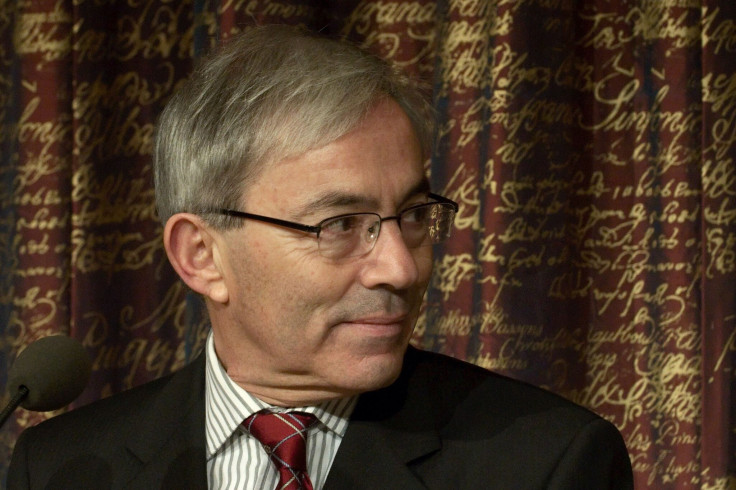Nobel Prize-Winning Economist Says Generative AI Could Create A 4-Day Workweek
According to Christopher Pissarides, a shorter workweek will not necessarily result in a loss in pay.

Back in April, Nobel Prize-winning economist Christopher Pissarides predicted that generative AI would help employees to be more productive in their jobs. As a result, they would end up spending less time on them.
In other words, he believes AI tools like ChatGPT would result in a four-day workweek. Now, the 75-year-old Regius Professor of Economics at the London School of Economics is even more positive that his prediction will come true.
With a considerable number of companies jumping on the generative AI bandwagon, attention has understandably turned towards safety regulations.
In an interview with Fortune, Pissarides said: "Now, I do believe that [ChatGPT] will improve the quality of work and probably improve productivity even more."
3 predictions for #FutureOfWork with #NobelPrice Christopher Pissarides pic.twitter.com/p3GmmlessM TY @wef via @enricomolinari | @plasmacomp@alvinfoo @chboursin @mvollmer1 @NevilleGaunt @DrJDrooghaag @JoannMoretti @DigitalColmer
— Plasma (@plasmacomp) May 19, 2020
---#innovation #AI #finserv #robotics #IoT #fintech
Furthermore, Pissarides noted that he believes even more strongly now that his prediction about a shorter workweek will be accurate. Pissarides is not alone when it comes to pushing the prospect of a shorter workweek.
Will AI take over your jobs or simplify them?
A new study conducted by think tank Autonomy revolves around how AI-driven productivity could pave the way for a four-day workweek in the US and UK. Likewise, billionaire investor Ray Dalio recently noted that AI transformation could lead to a 3-day workweek.
Taking this one step further, JPMorgan Chase CEO Jamie Dimon said the next generation of employees will only work 3.5 days a week. While a shorter workweek could be in the offing, it is unclear how AI will impact employee salaries.
In line with this, Google Bard product lead Jack Krawczyk recently addressed fears of AI development, noting AI isn't a replacement for people. Similarly, Pissarides suggests fewer hours at work won't necessarily result in a loss in pay.
"Pay will not fall because of improvements in productivity," Pissarides said. "Things will be done faster with ChatGPT, for example, with AI. We'd be able to do in four days what we're doing in five days in many professions," he added.
Pissarides went on to point out that robotics and other earlier automation tech were also expected to offer superior outcomes compared to humans. "We've always believed that automation technologies would improve productivity and they would improve sufficiently [to] be doing better with time," he told Fortune.
However, automation tools have always managed to cause concern regarding automation taking over our jobs. Today, alarmists are treating AI the same way. According to data shared by Goldman Sachs, about 300 million people globally could end up losing their jobs due to automation.
📢[How will we be living in a hyper-digital world?] Discover the interview of Sir Christopher Pissarides, Professor at the London School of Economics and #NobelPrize for Economics in 2010. #CardifSympo #Keynote #DigitalWorld #HyperDigital pic.twitter.com/bBchW5gWyM
— BNP Paribas Cardif (@bnpp_cardif) December 5, 2019
As if that weren't enough, industry experts, including Geoffrey Hinton who is known as the "Godfather of AI", have highlighted new worries surrounding the misuse of the technology.
Earlier this year, Hinton noted that preventing bad actors from using AI to harm people will be an arduous task. He also said that the technology is capable of manipulating humans and outsmarting them.
Pissarides, on the other hand, claims such predictions about AI are baseless since some details about this tech are still scarce. "AI is different because there's a lot more uncertainty about where it's going next [and] uncertainty about its capabilities," Pissarides said.
According to Pissarides, predicting where AI is going is hard because it is unclear "in which direction inventors are going to develop it". Meanwhile, Meta's AI chief Yann LeCun has indicated there's an AI war and Nvidia is one of its biggest benefactors.
© Copyright IBTimes 2025. All rights reserved.






















